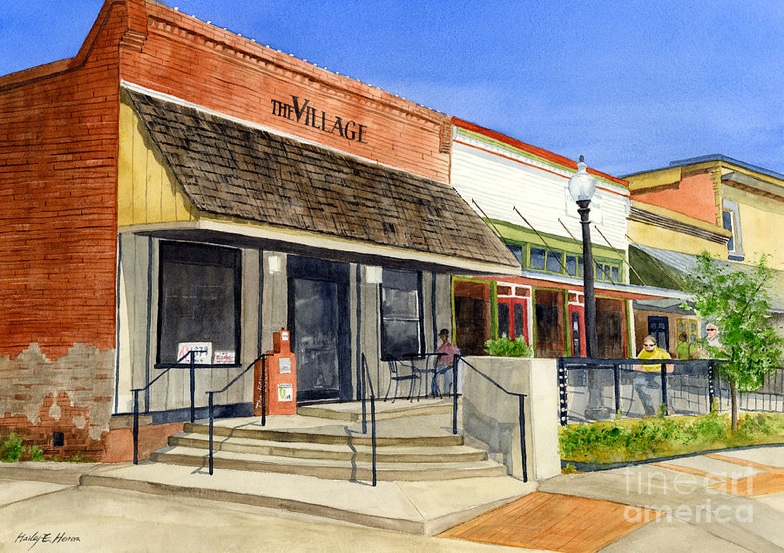What Should I Wear to a Nuclear Holocaust? All My Friends Will Be There

For whatever reason, probably a combination of nature and (lack of) nurture, I spent much of my life estranged from myself and those around me. As I heard someone say, I felt that between me and the world was a large sheet of glass. Some of this was connected to a lack of connection, which is to say that I didn't have much-connection, that is. (Watch out: Sometimes a sentence becomes a snake that can bite you.) Americans move around a lot and often settle in communities where, to quote Gertrude Stein, there's no there there, no sense of living in a place with public spaces, other than, perhaps the mall and a few bars. One of Schmidlin's goals with the Queen is to restore that feeling that American downtowns had before everything vamoosed for the suburbs: They were a hive of activity, with theaters, restaurants, clubs and - hold on, now - newsstands. Downtown Bryan already has a lot of that crackle, thanks to the way it's been brought back from death in the last few years. But a theater where people regularly came to see great films would help tie everything together.
And then there's death. As e.e. cummings said, in the middle of it all comes the smiling undertaker. A lot of friends and acquaintances have died recently. A retired librarian. A radio colleague. A guy who ran a garage on Texas Avenue for 46 years. A death of someone you know is always a blow, and those single blows escalate to a drum roll as you get older. But again, you knew those people, well or slightly, and cared about them and they about you, in varying degrees. Connections. You've been here long enough to know that the pizza joint used to be a drugstore and that there was once a nightclub called The Big Apple where a dollar store now stands. The joint was part of the Chitlin' Circuit, a loose network of African-American clubs across the country during the decades of racial segregation. I haven't found a picture of that place, but I can see it, plain as night.
The only problem with having that kind of knowledge about a place is that you have to resist the temptation to extrude facts out of context, as in, “Turn right where the feed store used to be.” That gets you some funny looks from people who have only been in town a few minutes and want dinner, not a local-history lesson. That's a problem one can deal with, can't one?
And of course, one of these days, I'll be one of those people who dies and ends up in a short death notice in the local rag, where I once worked. People will say things like, “What a jerk!” and, “He was a pretty nice guy, most of the time,” and who knows what else. As Marlene Dietrich says at the end of the aforementioned Touch of Evil, what does it matter what people say about you after you're dead. A lot, actually. To invoke cummings again, how do you like your blue-eyed boy, Mr. Death?
enough





